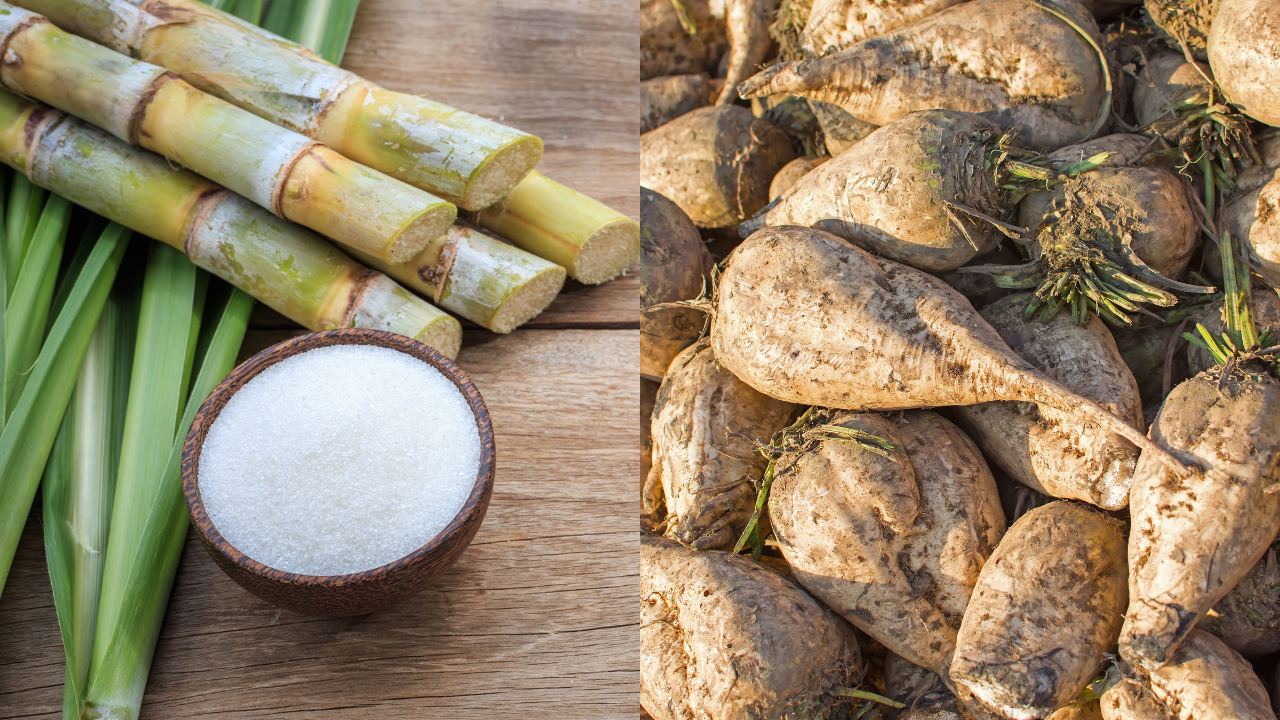A Comprehensive Check Out the Benefits and Uses of Beet Sugar Vs Cane Sugar for Sweetening Options
In the realm of sweetening, both beet sugar and cane sugar offer distinct benefits and culinary duties, albeit with similar dietary accounts. While beet sugar boasts a neutral flavor ideal for different dishes, cane sugar enriches meals with refined caramel undertones. The ecological considerations of their production are starkly various, painting a complicated image of sustainability. This juxtaposition welcomes a deeper expedition into exactly how each sugar effects not just our tastes but also the world.
Beginnings and Handling Approaches of Beet Sugar and Cane Sugar
Beet sugar and cane sugar, two predominant sweeteners, originate from very distinct plants and undergo different processing methods. Beet sugar is removed from the sugar beet, an origin vegetable, mainly grown in cooler climates. The processing includes slicing the beets to extract the juice, which is then purified and taken shape right into sugar. This approach is reasonably reliable, enabling sugar recuperation from numerous phases of the procedure.
Conversely, cane sugar originates from the sugarcane plant, an exotic lawn. Its processing begins with collecting the cane, crushing it to get the juice, and afterwards boiling this liquid to create sugar crystals. The remaining molasses-rich fluid can be re-boiled several times to produce differing grades of sugar. This process, although rather similar in its objective, varies substantially in terms of the ecological problems required for cultivation and the first action in extracting sugar. beet sugar vs cane sugar. Each approach reflects adaptations to the corresponding plant's natural habitats and residential or commercial properties.
Nutritional Contrast: Beet Sugar Versus Cane Sugar

When contrasting the dietary web content of beet sugar and cane sugar, it becomes obvious that both types give a similar power worth. Both beet and cane sugar are 99.9% pure sucrose, making them virtually similar in terms of calorie web content and dietary profile.
However, minor distinctions might emerge from the very little micronutrient that continue to be after handling, though these are as well minor to effect total health. Walking stick sugar can maintain traces of molasses, depending on the degree of refining, which might include tiny quantities of calcium, iron, and potassium. Beet sugar, on the various other hand, typically undergoes a procedure that removes these trace components extra extensively, causing an also purer type of sucrose.
Culinary Utilizes and Flavor Profiles
In spite of their nutritional resemblances, beet sugar and cane sugar split significantly in their culinary applications and continue reading this taste subtleties. Beet sugar, acquired from sugar beetroots, normally has a very neutral preference, making it a favored choice in cooking where it perfectly incorporates without changing the flavor account of other active ingredients.
Cooks and home cooks alike select sugars based on these features. While both sugars work similarly in regards to sweet taste and physical homes, the slight taste difference can affect the outcome of a recipe considerably, leading the option in between beet and cane sugar based upon the desired end outcome in cooking creations.
Health And Wellness Implications of Consuming Beet and Cane Sugars
Although beet sugar and cane sugar are commonly made use of reciprocally in food preparation and cooking, their health effects can vary subtly because of their distinct processing techniques. Both sugars give about the exact same quantity of calories and carbs per tsp, essentially providing comparable power payments with no intrinsic nutritional benefits. Nonetheless, the refining procedure for each sugar can alter the pop over to these guys existence of trace element and substances, although these variants are typically minimal and not considerable sufficient to affect one's wellness meaningfully.
The primary health issue with both types of sugar refer to their payment to extreme calorie consumption, potentially causing weight gain, and connected illness like kind 2 diabetes mellitus and cardiovascular disease when eaten in big amounts. Regardless of the resource, small amounts is vital in eating beet or cane sugars. Health and wellness specialists usually advise restricting sugarcoated in any type of form to maintain optimum wellness end results.
Ecological Impact and Sustainability of Sugar Manufacturing

On the other hand, sugar beet handling tends to create large quantities of pulp waste, which can be repurposed as pet feed or exchanged bioenergy, thereby minimizing some environmental effects (beet sugar vs cane sugar). Ultimately, the sustainability of sugar manufacturing pivots on adopting more environmentally friendly farming strategies and waste management methods to reduce the environmental impact of both sugar kinds

Verdict
To conclude, both beet and cane sugars offer valuable sweetening alternatives, each with distinctive benefits and downsides. While they are nutritionally similar, their farming effects and taste accounts vary substantially. Beet sugar is notable for its sustainability and neutral preference, whereas cane sugar is valued for its abundant flavor. Customers must consider these factors, in addition to the environmental ramifications of sugar manufacturing, to make informed selections about sugar usage that straighten with culinary requirements and moral values.